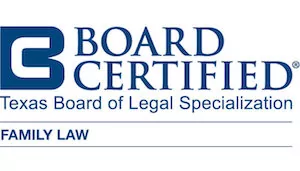Navigating child support matters in Texas can be a complex and emotionally charged process. Whether you’re seeking to establish, modify, or enforce an order for child support, it’s important to understand your rights and obligations. A qualified and experienced Cypress child support attorney can help you do just that.
If you have questions about how child support works in Texas, look no further than the Ramos Law Group, PLLC. Use our guide below to learn more and see how our team can help you protect your rights.
Ramos Law Group, PLLC: Your Cypress Child Support Lawyer
When looking for a child support attorney in Cypress, TX, it’s important to work with someone who has the right background and experience. While there are many law firms in and around Cypress, here are just a few reasons why we think the Ramos Law Group is the best team for the job.
- 100% focus on family law. Family law is a highly specialized field that requires the expertise of a firm that focuses on this practice area exclusively. At the Ramos Law Group, we focus 100% of our efforts on the practice of family law, so you can feel confident that we have the tools, resources, and experience necessary to effectively fight for you.
- Board certification. Firm founder Mary E. Ramos is Board Certified in Family Law by the Texas Board of Legal Specialization. This is a certification held by less than 1% of all Texas attorneys.
- Track record of success. We have a strong record of success and a good reputation in the community for fighting aggressively for our clients. Rest assured knowing that we will do everything in our power to get you the results you need.
- Raving fan guarantee. We are so confident in our team and our abilities that we offer a limited money-back offer if you are not fully satisfied with our services.
Don’t wait—speak with one of our lawyers today to discuss your Cypress, TX, child support case in more detail.
How Child Support Works in Texas
Not ready to proceed with hiring a lawyer just yet? That’s okay! In the meantime, here are some important things to keep in mind regarding child support in Texas so you have a better idea of what you can expect moving forward.
Child Support Guidelines
Texas uses child support guidelines to guide the courts in determining the appropriate amount of child support to award in any given case. Unless certain factors exist, the court typically orders the non-custodial parent (the obligor) to pay child support in an amount based on the number of children and the obligor’s net monthly resources as follows. Let’s look at the percentage of the obligor’s income that may be allotted for child support.
| Number of Children | Percentage of Obligor’s Net Resources |
| 1 | 20% |
| 2 | 25% |
| 3 | 30% |
| 4 | 35% |
| 5 | 40% |
| 6+ | Not less than the amount for 5 children |
The court follows these guidelines unless the judge finds good cause to deviate from them.
Deviation from Child Support Guidelines
Generally speaking, there is a rebuttable presumption that amounts established by the child support guidelines are reasonable and will be in the best interest of the child. However, in some cases, the court may deviate from these guidelines. In determining whether to do so, Texas courts will typically consider factors such as the following:
- Age and needs of the child;
- Each parent’s ability to contribute to the child’s support;
- Available financial resources;
- Amount of time or possession of and access to the child;
- Amount of child care expenses incurred by either party to maintain employment;
- Existence of any extraordinary educational, health care, or other expenses;
- Amount of post-divorce maintenancealimony or spousal supportmaintenance currently being paid or received by either party; and
- Debts of either party.
Note, however, that this is not an exhaustive list. If you have questions about other factors that could impact the potential amount of child support in your case, speak with an experienced family law attorney to discuss your rights and obligations in more detail.
Duration of Child Support
In most cases, an order for child support will remain in effect until the youngest child graduates from high school or turns 18, whichever is later. In some cases, however, child support obligations may extend beyond that.
Speak with a Cypress Child Support Attorney Today
To better understand your obligations and rights, consider speaking with a Cypress family law and child support lawyer.
At the Ramos Law Group, PLLC, we understand how overwhelming this process can feel. That’s why we’ve devoted 100% of our practice to helping our clients navigate the complexities of family law day in and day out. When you aren’t sure how to begin or where to turn, we will be there to provide you with the support and legal guidance that you need.
Contact our team to schedule your consultation and get started today.
FAQs
Can Parents Agree to Child Support Amounts?
Yes. According to Tex. Fam. Code § 154.124, the parties can enter into a written agreement regarding child support for their child or children. This is generally true even if the agreement deviates from the standard child support guidelines. Notably, however, if the court determines that the proposed child support agreement is not in the child’s best interest, it may request a revised agreement from the parties.
What Do I Do If My Ex Is Not Complying with the Child Support Order?
If the obligor fails to comply with their child support obligations as detailed in a court order, Texas law provides for several enforcement mechanisms. Examples include withholding the payments directly from the obligor’s paychecks, intercepting their tax refunds, or, in some cases, holding the individual in contempt of court.
Can Child Support Orders Be Modified?
Yes. Under certain circumstances, the court can modify a child support order. However, a child support order typically may be modified only when there has been a material and substantial change in circumstances. Your lawyer can help you decide if you have a substantial enough change to warrant a modification.










